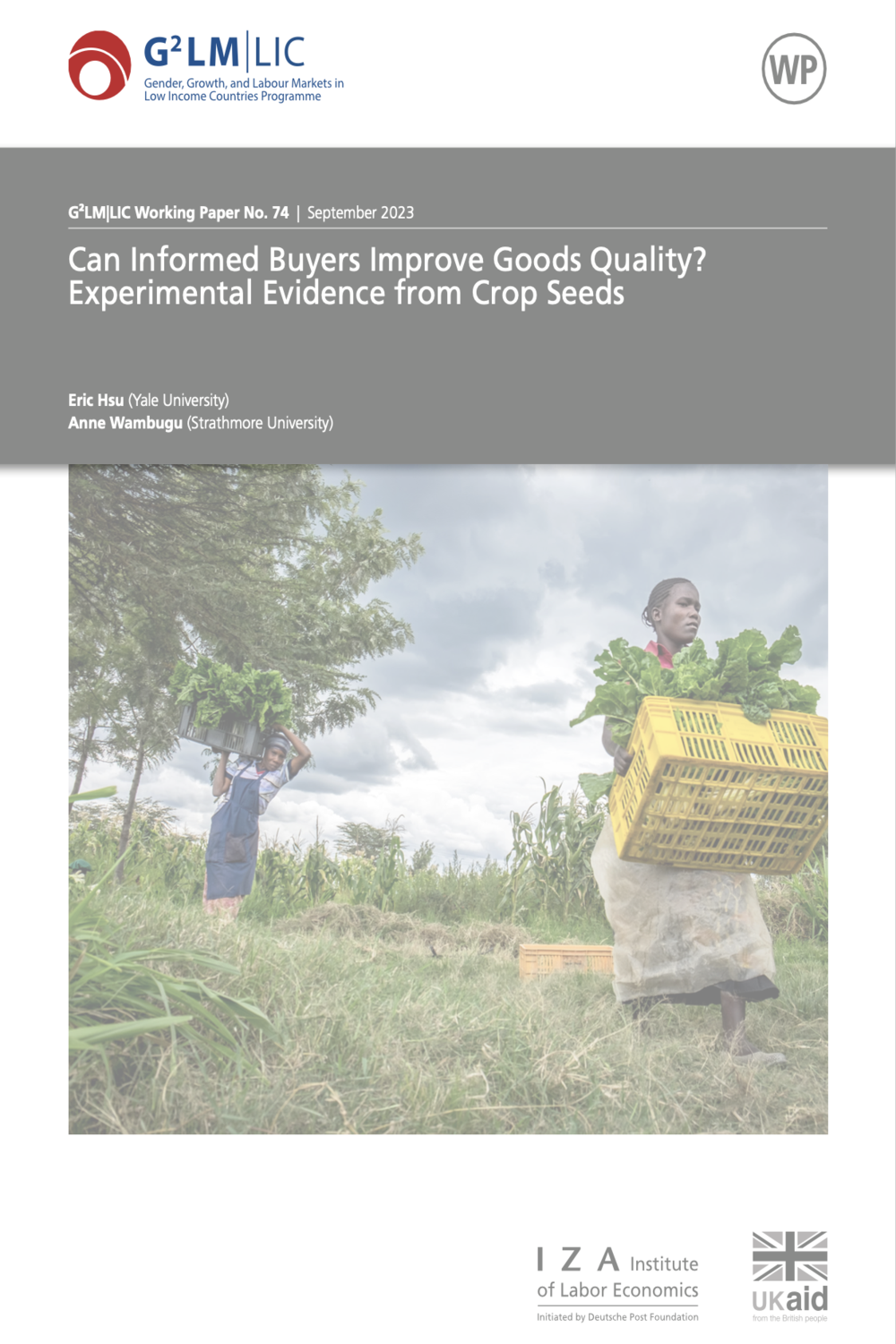We study whether adding informed buyers to a market can improve the quality of goods supplied by sellers, in an environment where goods quality is difficult to observe. To do so, we implement a market-level intervention, randomizing rural markets in Kenya into a community-wide information campaign. Small-scale farmers in treated market areas were trained to identify hybrid maize seeds that are quality-verified. In this setting, there are widespread concerns about deceptive counterfeits and other uncertified seeds of lower quality. We find that observable markers predict seed quality. Treatment increased knowledge of these markers, affected seed purchase decisions, and increased maize production. Impacts were heterogeneous, with more educated and more remotely located farmers benefiting more. Uninformed buyers in treated communities did not gain better access to high-quality seeds, as revealed by data from secret shoppers. These patterns can be explained by a model in which informed buyers can detect quality and can change sellers if needed to obtain higher quality. However, more informed consumers hurt firm profits and can induce sellers to exit the market if upgrading quality is too costly. As a result, uninformed consumers may not benefit from the presence of more informed consumers. Consistent with these predictions, we find that treatment caused many seed sellers to exit the market. Taken together, the findings document new stylized facts and provide evidence relevant for boosting yields of a staple crop. More generally, they provide lessons concerning the role of improved consumer information in disciplining firms in low-information environments.
